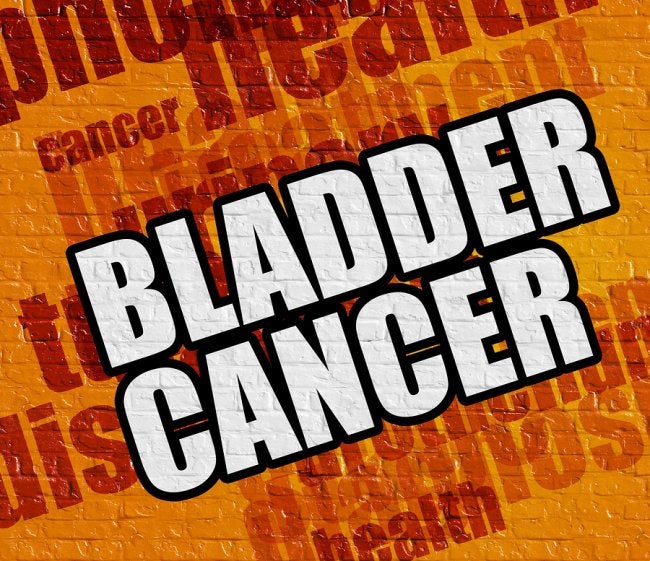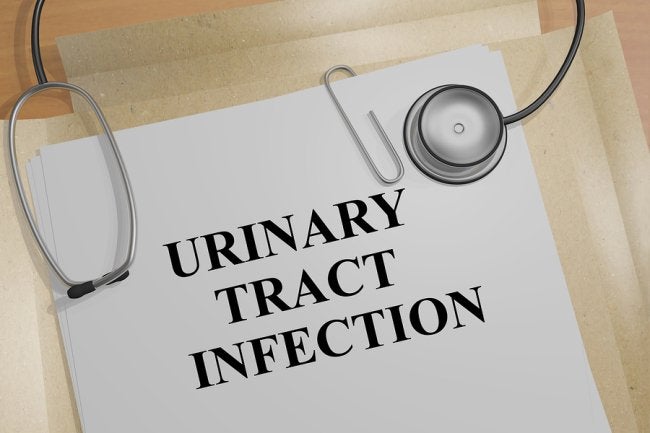-
Dealing with Painful Sex After Childbirth

It usually takes about six weeks for women to heal from childbirth. Ob/Gyns generally recommend waiting at least this long before having sex. If you’re past this point and intercourse is still painful, your gynecologist may need to evaluate your sexual health. It’s possible that you aren’t fully healed.
In most cases, however, persistently painful sex after childbirth is attributable to vaginal dryness. If you’re breastfeeding, your hormone levels can increase vaginal dryness and cause sexual health problems. The increased level of prolactin can also suppress libido. This sort of sexual dysfunction should be temporary. In the meantime, you can use a lubricant to prevent pain. Choose a glycerin-free lubricant to reduce the risk that the condom will break.
At Urology Associates, P.C. , we understand that women with sexual health issues in Nashville need sensitive, patient-focused care. Contact us at (615)250-9265 to request a confidential appointment with one of our dedicated providers at the Women’s Institute for Sexual Health (WISH).
-
Diagnosing Bladder Cancer
In most cases, bladder cancer begins in the lining of the bladder. As it progresses, it can penetrate deeper and potentially spread to other parts of the body. As with other types of cancer, it’s preferable if a urologist diagnoses bladder cancer when it’s in its early stages. When you watch this featured video, you’ll hear from Dr. David Morris—a board-certified urologist at Urology Associates, P.C.
Dr. Morris explains that many bladder cancer patients come to Urology Associates, P.C. after noticing blood in the urine. To diagnose the problem, you will likely have a cystoscopy, which is an invasive exam that may include a biopsy.
At Urology Associates, P.C., you’ll receive exceptional, compassionate bladder cancer care in Tennessee. You can request a referral to a urologist by calling (888) 329-7700.
-
Reducing Your Risk of Kidney Stones

Kidney stones are comprised of hardened deposits of minerals and acid salts. Although the symptoms of kidney stones can vary in intensity, many women have said the pain is worse than childbirth. Not all kidney stones require surgical intervention, but it’s a good idea to consult a urology specialist for expert treatment. If you’ve been diagnosed with kidney stones once, you should know that you’re at risk of getting them again. The following tips can help you prevent recurrent stones.
Increase your water intake.
Drinking plenty of water is essential for your health in general and kidney stone prevention in particular. During hot weather and while exercising, increase your water intake even more. As a general rule of thumb, you’re drinking enough water if your urine is very lightly colored or clear.
Increase your consumption of plant-based proteins.
It’s thought that eating lots of animal-based proteins may increase the risk of developing kidney stones. Your urologist may ask that you limit beef, chicken, and pork. Organ meat is thought to be especially impactful regarding kidney stone development. Consider limiting your intake of eggs, poultry, seafood, and dairy products.
Avoid calcium supplements.
Although calcium can be found in kidney stones, the consumption of food sources of calcium doesn’t appear to influence the risk. However, your urologist may suggest that you avoid calcium supplements.
Reduce your sodium intake.
Managing your sodium intake is particularly important if your kidney stones were calcium oxalate or calcium phosphate stones. There are lots of sneaky sources of sodium in the average American diet. High amounts of sodium are found in deli meats and cheeses, bread, pizza, soup, canned foods, and even frozen vegetables that include sauces. An effective way to reduce your sodium intake is to avoid processed foods and takeout, and to cook with fresh ingredients at home instead.
If you do need kidney stone treatment within Tennessee, you can count on Urology Associates, P.C. Our urologists offer cutting-edge treatments and sound medical guidance you can trust. Call our office at (888) 329-7700 to request a prompt appointment.
-
A Patient’s Guide to Epididymitis

The epididymis is a small, coiled tube located at the rear of the testicle. It’s responsible for storing and transporting sperm. When this tube becomes inflamed, the condition is called epididymitis. Epididymitis can be painful. If you suspect you might have this condition, it’s a good idea to see a urologist promptly.
Signs and Symptoms
Acute epididymitis often causes one-sided testicular pain and tenderness, swelling and reddening of the testicle, and painful urination. Men may also experience the following:
- Urgent or frequent urination
- Penile discharge
- Painful ejaculation
- Pain of the pelvic region
- Bloody semen
- Testicular lump
- Fever
Chronic epididymitis occurs when the symptoms last longer than six weeks.
Causes and Risk Factors
In boys and men who are sexually active, the most common cause of epididymitis is sexually transmitted diseases (STDs) like gonorrhea and chlamydia. It’s also possible to develop epididymitis because of a non-STD infection, such as urinary tract infections. In some men, urine trickles backward into the epididymis. This can also cause inflammation. Other possible causes and risk factors include the following:
- Groin injury
- Tuberculosis
- Certain medications
- Unprotected sex
- Prostate enlargement
- Uncircumcised penis
Diagnostic Tests
To diagnose epididymitis, a urologist will perform a physical exam, review the patient’s medical history, and evaluate his symptoms. A rectal exam may be needed to rule out the possibility of prostate enlargement. Then, the urologist may ask to run some tests, such as an STD screening, urine test, and blood test. Sometimes, an ultrasound can be helpful to rule out the possibility of testicular torsion.
Treatment Options
If the urologist determines that the problem is caused by a bacterial infection, he or she can prescribe antibiotics. For STDs, it’s necessary to treat the patient’s sexual partner. While the infection is clearing up, patients can relieve their discomfort by wearing an athletic support and applying cold packs. A follow-up visit will check whether the infection has resolved. In some cases, an abscess may have formed. This requires surgical intervention.
If you’re experiencing sexual health problems, you can turn to the trusted urology team in Tennessee. The award-winning, board-certified urologists at Urology Associates, P.C. are dedicated to providing compassionate, patient-centered care. Call (888) 329-7700 to request an appointment or visit our website to read more about male health issues, including sexual dysfunction.
-
A Look at Life After Bladder Cancer

Surviving any type of cancer is cause for celebration. But if you’ve survived bladder cancer , you should know that you’re at a high risk for recurrent bladder cancer. Your cancer care team at Urology Associates, P.C., will develop a survivorship care plan that is designed to help you live life well after cancer.
Keep all appointments for follow-up exams.
Your survivorship care plan should include a schedule of follow-up exams you’ll need. Because of the high risk of recurrent cancer, it’s essential not to skip these appointments. At each follow-up visit with your urologist, you’ll likely have a physical exam. You may be asked to have some medical tests, which might include blood tests, imaging exams, and urine tests. Assuming that you still have your bladder, you can expect periodic cystoscopy exams. As time passes and you remain cancer-free, your doctor may begin scheduling follow-up visits with reduced frequency.
Report unusual symptoms you experience to your doctor.
If you experience any signs or symptoms that might indicate a recurrence of cancer or the development of new cancer, contact your doctor right away—don’t wait for your next follow-up appointment. Your urologist will let you know which signs and symptoms to watch out for, such as changes in urination and bloody urine.
Reduce your exposure to toxins.
It’s to be expected that, after surviving bladder cancer, you’d be motivated to make some lifestyle changes to improve your health. There is no foolproof way to prevent recurrent cancer or new cancers, but there are impactful ways you can safeguard your health. If you don’t smoke, don’t start and also try to avoid secondhand smoke. If you do smoke, talk to your doctor about methods of quitting. Other environmental toxins may contribute to an increased risk of cancer. If your job requires exposure to any chemicals, you can ask your doctor if this might place you at an increased risk.
For compassionate bladder cancer treatment in Tennessee, you can put your trust in the caring team at Urology Associates, P.C. Our urology specialists are committed to helping our patients live life well , during and after cancer treatment. Call us today at (888) 329-7700.
-
Get the Answers to Your Questions About Vasectomy Reversal

It’s not uncommon for men who have undergone a vasectomy in the past to decide that they would like to reverse the procedure. In many cases, with the help of a trained urologist, reversals can be successful. If you are considering having a vasectomy reversal, here are the answers to some questions that are likely to be on your mind.
What is the first step in getting a vasectomy reversal?
The first step is to schedule an appointment with a urologist. During this consultation appointment, your physician will ask extensive questions about your medical history, including your fertility history. If you are having the reversal because you want to start a family in the short term, your urologist will also ask questions about your partner’s fertility history. This information allows your urologist to determine the best way to support your goals to achieve pregnancy. Many men find it helpful to bring their partners with them to the initial consultation.
What happens during the procedure?
The exact process your urologist chooses for your vasectomy reversal depends on many different factors, including how long it has been since your vasectomy and how that initial procedure was performed. Your urologist will explain the care plan he or she creates for you in detail so that you know exactly what to expect.
Will my vasectomy reversal work?
The biggest factor in determining how successful your vasectomy reversal will be is the length of time since your vasectomy. It is impossible to know for sure which reversal procedures will be successful, but your urologist can help you understand your chances of success and what your options are should the procedure fail.
Because many insurance companies do not cover vasectomy reversals, Urology Associates, P.C., offers helpful financing plans for patients. To make an appointment for your urology consultation in Tennessee call (855) 901-1338.
-
The Unique Approach to Women’s Care at WISH

The Women’s Institute for Sexual Health, WISH, a division of Urology Associates, P.C., is committed to dispelling myths about women and sexual health and helping women of all ages reclaim their sexual well-being. Our unique approach makes a dramatic difference in your health and leaves you feeling empowered to be an active participant in your care.
At WISH, we help women deal with issues associated with sexual function and pelvic conditions. Our multidisciplinary team of providers works in close conjunction with other women’s health partners throughout the community including gynecologists, psychologists, and physical therapists. We are committed to education, holistic care, and progressive treatments that allow women to embrace their sexual health and feel their best.
Lowered libido, diminished sexual functioning, and incontinence are not normal parts of life for women. Reclaim your health by making an appointment at WISH , a division of Urology Associates, P.C., in Nashville or Franklin, TN. Schedule your consultation today by calling (615)250-9265.
-
Your Treatment Options for Pelvic Organ Prolapse

Pelvic organ prolapse can be a painful problem that can lead to incontinence and sexual dysfunction for the women who suffer from it. When pelvic organ prolapse occurs, structures within the pelvic region, including the uterus and rectum, can bulge and put pressure on the vaginal wall. Fortunately, if a prolapse does occur, help is available. Schedule an appointment with your urologist to find which treatment could be right for you.
Lifestyle Habits
For pelvic organ prolapse that is not causing severe symptoms, the only treatment that may be necessary is making lifestyle changes. Increasing the fiber in your diet to at least 20 grams per day to reduce the risk of constipation can help, as can maintaining a healthy weight. Do Kegel exercises daily, which strengthen the pelvic muscles. Don’t do any activities that involve heavy lifting, which can put undue pressure on the pelvic muscles.
Pessary
When lifestyle changes are not enough to control pelvic organ prolapse, then it may be necessary to use a pessary. A pessary is a plastic ring that is inserted into the vagina to hold prolapsed organs in place. It looks similar to the thick, outer edge of a diaphragm and is removable. Your urologist can talk to you about maintaining your pessary at home by removing it a few times a week to clean. If it is difficult to remove, then you may need periodic visits to your urologist so that it can be removed and cleaned in the office.
Surgery
For severe cases, surgery may be necessary. The type of surgery your urologist recommends will depend on the type of pelvic organ prolapse you have. For instance, if you have severe uterine prolapse, a hysterectomy may be the best treatment. Repair of the vaginal wall, vaginal closure, and removal of other pelvic organs are all possible.
Your urologist at Urology Associates, P.C., can help you overcome the pain and uncomfortable symptoms of pelvic organ prolapse with an array of cutting-edge treatment options. Talk to a urology specialist in Nashville today by calling (855) 901-1338.
-
Get the Facts About Erectile Dysfunction
If you are suffering from erectile dysfunction (ED) then you should know that you’re not alone and that help is available. By visiting a urologist, you can find a solution to ED that works for you.
Watch this video to learn more about erectile dysfunction. Note that ED is treatable and that it is not the same thing as impotence. Impotence is not a condition but rather an inability to act in any number of situations. ED is a specific medical condition that can be treated by a urologist.
Why suffer in silence with erectile dysfunction when help is available throughout Middle Tennessee at Urology Associates, P.C. Make an appointment with one of our skilled and compassionate providers by calling (855) 901-1338.
-
Signs of a Kidney Infection

Urinary tract infections (UTIs) can sometimes affect one or both kidneys, particularly if these infections are not met with early treatment. If the kidneys do become involved, then prompt UTI treatment is critical to prevent additional complications. Rarely, these complications can include death. Urinary tract infections that involve the kidneys may be indicated by the need to urinate more frequently than usual, painful urination, and abdominal pain.
Patients may experience nausea and vomiting, and they may develop a fever and chills. Pain can develop in the back, side, and groin. It’s important to note that certain patients may not display these typical signs. Elderly patients may only display confusion or confused speech. Children younger than two years of age might only display a high fever.
Patients who develop urinary tract infections in the Nashville area can turn to Urology Associates, P.C. for expert treatment. Call us at (855) 901-1338 to request an appointment with one of our highly trained urologists.
Recent Posts
categories
- Uncategorized
- Bladder Cancer
- Women's Sexual Health
- MonaLisa Touch
- Urology
- Urologist
- Erectile Dysfunction
- Kidney Cancer
- Incontinence
- Prostate
- MonaLisa Touch Laser Treatment
- Kidney Stones
- Urinary Tract Infections
- Event
- Sexual Dysfunction
- Testicular Cancer
- Prostate Cancer
- Urology Surgery Center
- urinary incontinence
- vaginismus
- noncoital pain disorder
- Hypoactive Sexual Desire Disorder
- Infographic
- provenge
- Xofigo
- robotic surgery
- hormone replacement
- diabetes
- renal cell carcinoma
- pelvic pain
- hematuria
- sexual health
- chronic testicular pain
- premature ejaculation
- Men's Health Clinic
- Dr. Melvin Seard
- Interstitial Cystitis
- vasectomy
- overactive bladder
- vaginal atrophy
- nocturia
- bladder infections
- urethral strictures
- Acute Epididymitis
- low sex drive
- circumcision
- pelvic floor dysfunction
- Peyronie's Disease
- prostatitis
- female sexual dysfunction
- varicocele
- difficult urination
- low libido
- PSA levels
- male fertility
- penile prosthesis
- prostatic intraepithelial neoplasia
- male infertility
- estrogen levels
- nurse navigator
- stress urinary incontinence
- vaginal yeast infection
- elevated psa
- painful sex
- adult circumcision
- epididymitis
- OAB
- kidney infection
- penile cancer
- pelvic organ prolapse
- Vasectomy Reversal
- bone health
- cystectomies
- clinical trials
- bloody urine
- Advanced Therapeutic Center
- WISH MedSpa
- neurogenic bladder
- WISH Team
- prostate biopsies
- BPH
- fecal incontinence
- lithotripsy
- osteoporosis
- kidney cysts
